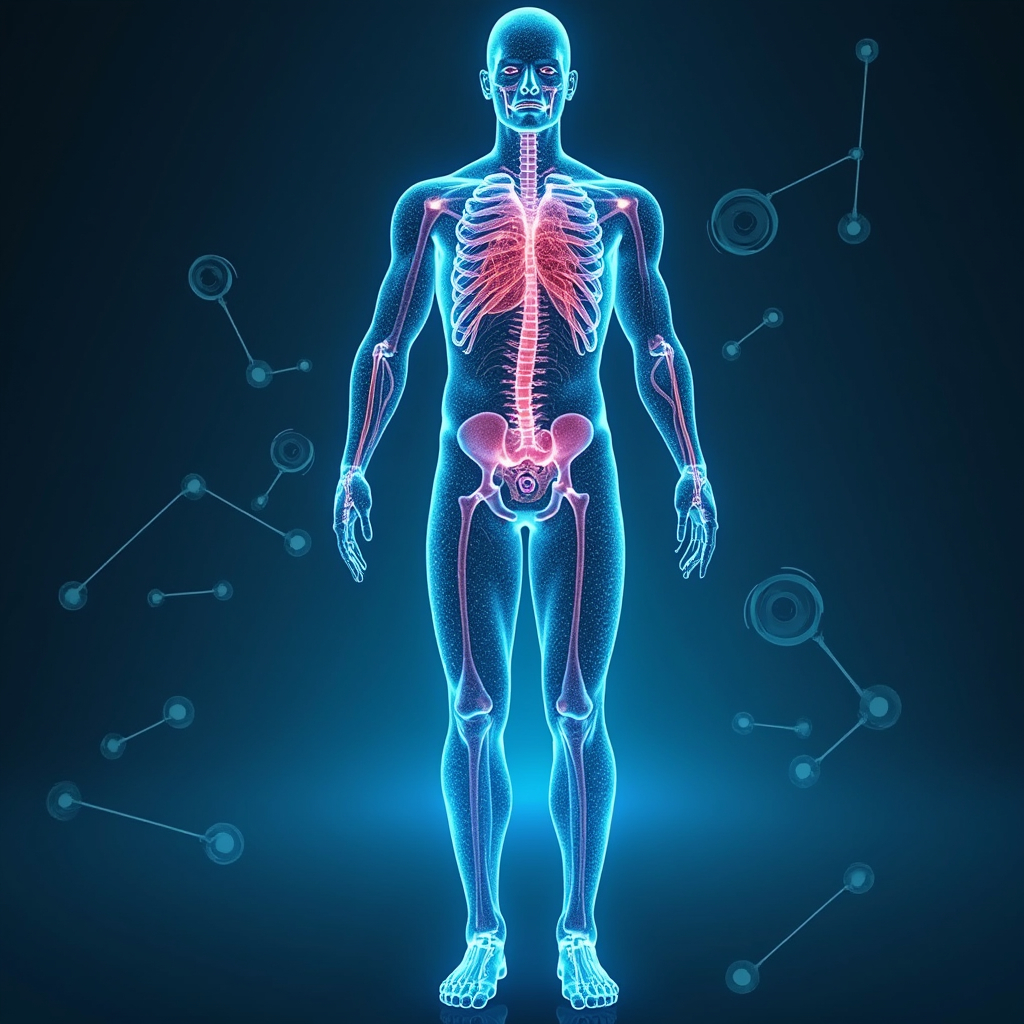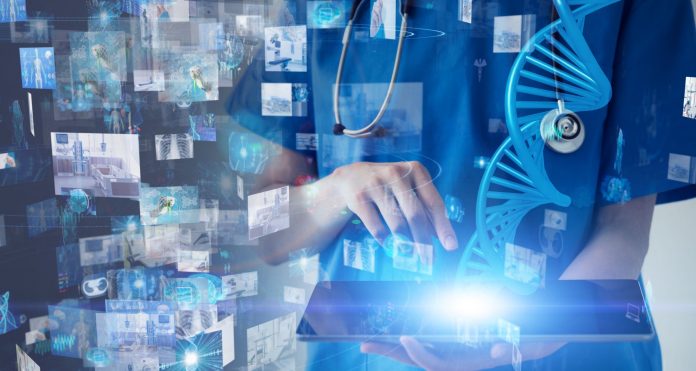This article has been written by Manika Awasthi pursuing a Training program on Using AI for Business Growth course from Skill Arbitrage.
This article has been edited and published by Shashwat Kaushik.
Introduction
Artificial intelligence (AI) has been silently existing for a long time, almost a decade, but with the advent of ChatGPT, the popularity of AI has skyrocketed. It has been really surprising to know how much AI can do, as well as scary to understand how much AI knows about you. AI has been continuously spreading its feet into each and every field of our lives and making us more and more tempted to incorporate it. However, many of us are still sceptical about involving AI in our daily tasks and becoming dependent on it. But as per human nature, we always accept things that lower our burden and save our time as well as money and AI can surely do all of this. AI is currently being used in almost all the industries, from academics to aeronautics, production to marketing, and finance to management. This can be proven by the record increase in the investments in AI startups recently. The most interesting area in which AI has affected each and every human being has been the healthcare industry, with health being our primary need for surviving. AI in healthcare is being involved from diagnostics to patient care, thus reducing the labour and cost while maximising the benefits. Although the promising future of the healthcare industry after the involvement of AI can not be denied, it also poses many challenges regarding technology as well as the demanding environment. Considering the importance of healthcare in our lives, this article highlights the current issues in this industry and provides the benefits along with the challenges in using AI in different sectors of the healthcare industry. Here we will also get to know the steps needed to overcome the challenges posed by the advent of AI in healthcare to boost the efficiency and effectiveness of the healthcare personnel.
Problems in healthcare industry
Workforce shortage
A shortage in the number of healthcare professionals, including nurses, physicians, and specialists, affects patient healthcare and outcomes. It also increases the workload on existing staff, leading to a decrease in patient satisfaction and delivery.
Rising cost
The continuous increase in healthcare costs is affecting both patients as well as healthcare providers. The maximum number of patients could not afford the advanced treatments and had to compromise with their well being. It’s a challenge to maintain a balance between quality healthcare and financial affordability.
Access and equity
There is an uneven distribution of resources based on the geographical locations of the patients and their socio-economic status. The patients living in the remote areas do not have access to advanced medical facilities, leading to unfair practices and corruption.

Administrative responsibilities
The healthcare personnel have to manage a lot of paperwork and administrative tasks along with their duties. This leads to a decrease in their efficiency and productivity, resulting in low patient outcomes and satisfaction.
AI in healthcare
The issues mentioned above are being addressed with the help of AI and the result shows a lot of promise in the upcoming years. AI is continuously changing the way the healthcare industry works at all levels. It is involved from the patient diagnosis to patient care and beyond. AI is not only improving the basic healthcare and disease outcomes but also involved in drug discovery. Given below are the advancements in different sectors of the healthcare industry with the involvement of AI.
Research institutions
AI has accelerated the process of drug discovery by decreasing the time for clinical trials. It has also helped in testing synthetic candidates for drug trials as well as to repurpose old drugs to be used for the treatment of new ailments. The advent of AI has provided new ethical alternatives to human and animal testing by simulating human physiological responses to the drugs. This has led to new and fast ways of drug discovery, leading to improved disease outcomes.
Private sector
The private sector in this industry is most benefitted from AI as it is involved with both patients and healthcare providers. The patient suffering with initial symptoms can now easily use basic healthcare from the comfort of their home with the help of various applications and get a fast tele-consultation as well. This can also provide basic healthcare to remote areas and thus reduce disparity in access to medical facilities.
AI can also help in hospital visits by selecting suitable specialists, appointments, and prescriptions. The chatbots and virtual assistants provided by AI are the real problem solvers to gather data and suggest the best treatment along with a plan of action. AI can analyse genetic and clinical data to improve patient outcomes and reduce the use of trial and error methods.
The sector of the healthcare industry that is most affected by AI is pathological and clinical testing. The roles most affected by AI are those of pathologists and clinicians. AI is used to analyse images and predict disease outcomes, which has led to improved diagnostic accuracy. These analyses are then translated to human language, which results in the reduction of jobs in these areas.
Hospital sector
AI has also improved the care of hospitalised patients by providing them with the personalised treatment plan, leading to better patient outcomes. AI technology also assists in surgical procedures and provides accurate predictions in terms of further treatment and at-home care. It reduces the load of hospital personnel by taking over their paperwork and managing their administrative responsibilities, thus improving operational efficiency. It is also involved in patient monitoring along with pre and post-hospital care.
Pharmacy sector
AI also helps in maintaining and reducing the workload of pharmacies. It is involved in prescription processing, inventory management, and supply chain optimization. AI can also suggest medicines based on patient’s data and provide predictive analysis for patient care.
The positive impact of AI on healthcare jobs
Artificial intelligence (AI) is transforming the healthcare industry, and with it, the job market. While some fear that AI will replace human workers, the reality is that AI is more likely to create new jobs and improve existing ones.
AI-enabled diagnostics

One of the most significant ways AI is impacting healthcare jobs is by aiding in diagnostics. AI algorithms can analyse large amounts of data to identify patterns and trends that would be difficult for humans to detect. This can help doctors diagnose diseases earlier and more accurately, leading to better patient outcomes.
For example, AI-powered diagnostic tools can help radiologists identify cancerous tumours on MRI scans with greater accuracy than human radiologists alone. This can lead to earlier detection and treatment of cancer, which can save lives.
Automated administrative tasks
AI can also automate many of the administrative tasks that healthcare professionals must perform, such as scheduling appointments, processing insurance claims, and managing patient records. This can free up healthcare professionals to spend more time on patient care, which can lead to improved quality of care.
For example, AI-powered chatbots can answer patients’ questions about their appointments, medications, and insurance coverage. This can help patients get the information they need quickly and easily, without having to wait for a human operator.
Personalised medicine
AI is also making it possible to develop personalised medicine, which is the tailoring of medical treatment to the individual patient. By analysing large amounts of data about a patient’s health, AI can help doctors develop treatment plans that are more likely to be effective and have fewer side effects.
For example, AI-powered algorithms can help doctors predict which patients are at risk of developing certain diseases. This can help doctors take steps to prevent these diseases from developing in the first place.
New jobs in AI development and implementation
The development and implementation of AI in healthcare is also creating new jobs. These jobs include AI engineers, data scientists, and healthcare informaticians. These professionals are responsible for designing, building, and deploying AI systems in healthcare settings.
For example, AI engineers are responsible for developing the algorithms that power AI-enabled diagnostic tools. Data scientists are responsible for collecting and analysing the data that AI systems use to learn. And healthcare informaticians are responsible for ensuring that AI systems are used safely and effectively in healthcare settings.
Types of AI in healthcare
Artificial intelligence (AI) has the potential to revolutionise healthcare by automating tasks, improving diagnostics, and personalising treatments. There are many different types of AI that can be used in healthcare, each with its own strengths and weaknesses.
Machine learning
Machine learning is a type of AI that allows computers to learn without being explicitly programmed. This is done by feeding the computer large amounts of data and then letting it find patterns and relationships on its own. Machine learning can be used for a variety of healthcare applications, such as:
- Diagnosing diseases.
- Predicting patient outcomes.
- Developing new drugs.
- Identifying fraud and abuse.
Natural language processing
Natural language processing (NLP) is a type of AI that allows computers to understand and generate human language. This can be used for a variety of healthcare applications, such as:
- Analysing patient records.
- Generating reports.
- Providing patient education.
- Communicating with patients and their families.
Computer vision
Computer vision is a type of AI that allows computers to interpret images and videos. This can be used for a variety of healthcare applications, such as:
- Detecting tumours.
- Diagnosing skin diseases.
- Analysing medical images.
- Guiding surgical procedures.
Robotics
Robotics is a type of AI that allows computers to control physical objects. This can be used for a variety of healthcare applications, such as:
- Performing surgery.
- Delivering medication.
- Assisting with rehabilitation.
- Providing companionship for patients.
Challenges in AI implementation

In light of the above-mentioned problems, although AI provides relevant solutions, incorporating AI in the healthcare industry is not an easy task. Adoption of this new technology will lead to disruption in the existing workflow of the industry. Although AI will reduce the workload of the professionals, it will also cause many professionals to lose their jobs due to automation of the majority of tasks. The main areas that are under threat would be pathology and radiology, along with administrative and clerical roles. Moreover, overreliance on AI can lead to loss of critical thinking and clinical judgement. There will be a reduction in the job satisfaction of the professionals who will be continuously required to acquire new skills. Also, the high-end infrastructure requirements for the incorporation of AI in the healthcare industry will increase the overall cost considerably.
Integrating AI in healthcare also raises ethical as well as legal concerns about data privacy, accountability, algorithmic biases, and data security. These concerns create doubts, which lead to the demand for more stringent regulations for the incorporation of AI in the healthcare industry. Now the most valuable thing that AI misses is the emotional touch, which is of major importance especially in healthcare, where patients come with a lot of stress and pain. The most challenging aspect of AI implementation would be this human touch, which creates a big gap in the complete acceptance of AI throughout the industry. However, with the growing advancements in technologies, we can never be sure that this drawback could not be overcome.
Strategies to overcome the challenges
The most important strategy to overcome the challenges in AI implementation would be to take a balanced approach that can complement the existing workforce rather than replace it. There is a need to build collaboration between both to reduce the negative impact. Policymakers must address the ethical and legal implications, which will lead to improved data governance and regulations. The organisations must start investing in training and upskilling of the professionals. Though implementation of AI will lead to few job losses, it will also create a new line of job opportunities related to AI development and management. Thus, it is needed to welcome AI in all the fields, including healthcare, with open minds and hearts and move towards an improved and advanced future.
Conclusion
AI creates a whole new world of possibilities that needs to be explored and utilised in a balanced way. We need to embrace this collaboration of AI and harness its power for our advantage while prioritising the well-being and job satisfaction of the working professionals. The healthcare industry needs to understand the dynamics and adapt to the changing landscape. The professionals need to acquire skills and remain competitive to stay viable in the market. Although it is difficult to predict the exact impact of AI implementation in the healthcare industry in the long-term, it can never replace the experience and skills of humans along with the emotional touch. It has to be understood where we need to implement AI and where the human is irreplaceable, so that the benefits of AI are fully explored and shared fairly. Finally, what I understand is that AI is not here to slash the jobs but only to shift the type and nature of jobs.
References
- https://www.himss.org/resources/impact-ai-healthcare-workforce-balancing-opportunities-and-challenges#:~:text=Job%20displacement%3A%20As%20AI%20becomes,potentially%20leading%20to%20job%20losses.
- https://www.forbes.com/sites/bernardmarr/2024/05/21/how-generative-ai-will-change-jobs-in-healthcare/
- https://www.linkedin.com/pulse/impact-artificial-intelligence-medical-practices-2024-transformations-hy6wc/
- https://www.linkedin.com/pulse/impact-ai-medical-student-careers-healthcare-industry-mr-ratan-bajaj-ztvnc/
- https://ai-med.io/more-news/the-impact-of-artificial-intelligence-on-labor-and-employment-in-healthcare/
 Serato DJ Crack 2025Serato DJ PRO Crack
Serato DJ Crack 2025Serato DJ PRO Crack










 Allow notifications
Allow notifications


